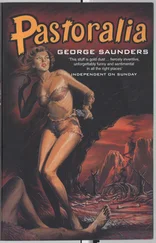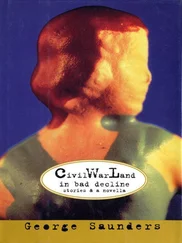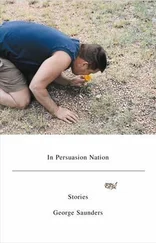the reverend everly thomas
LXXXI.
The lad lay collapsed on the floor of the white stone home, cocooned to the neck in a carapace that appeared fully concretized.
hans vollman
The putrid smell of wild onions pervaded that vicinity, progressing, in its density, toward a different, more sinister odor, for which there is no name.
the reverend everly thomas
He lay gazing up at us, dull-eyed, acquiescent.
roger bevins iii
It was over.
the reverend everly thomas
The lad must take his medicine.
hans vollman
We gathered around to say goodbye.
roger bevins iii
Imagine our surprise, then, when a woman’s voice rang out, offering a parley, suggesting that “HE” would have no objection if we wished to transport the boy back up to the roof, so that he might serve out his (infinite) interment there.
the reverend everly thomas
Mind you, none of this is by our choice, said a bass voice, with a slight lisp. We are compelled.
roger bevins iii
These voices seemed to be emanating from the carapace itself.
hans vollman
Which seemed comprised of people. People like us. Like we had been. Former people, somehow shrunken and injected into the very fabric of that structure. Thousands of writhing tiny bodies, none bigger than a mustard seed, twisting minuscule faces up at us.
the reverend everly thomas
Who were they? Who had they been? How had they come to be so “compelled”?
roger bevins iii
We won’t discuss that, said the woman’s voice. Will not discuss that.
Mistakes were made, said the bass voice.
hans vollman
My advice? said a third, and British, voice. Do not massacre an entire regiment of your enemy.
Never conspire with your lover to dispose of a living baby, said the bass lisper.
roger bevins iii
Rather than murdering your loved one with poison, resolve to endure him, said the woman.
the reverend everly thomas
Sexual congress with children is not permitted, said the voice of an old man, from Vermont, judging by his accent.
hans vollman
As each spoke, the associated face bloomed up out of the carapace for the briefest of instants, bearing upon it a look of agony and aggrievement.
the reverend everly thomas
We had seen many strange things here.
roger bevins iii
But this was the strangest yet.
hans vollman
Are you — are you in Hell? asked the Reverend.
Not the worst one, said the British fellow.
Are not compelled to bash our skulls against a series of clustered screw-drivers at least, said the woman.
Are not being sodomized by a flaming bull, said the bass lisper.
roger bevins iii
Whatever my sin, it must, I felt (I prayed), be small, compared to the sins of these . And yet, I was of their ilk. Was I not? When I went, it seemed, it would be to join them.
As I had many times preached, our Lord is a fearsome Lord, and mysterious, and will not be predicted, but judges as He sees fit, and we are but as lambs to Him, whom He regards with neither affection nor malice; some go to the slaughter, while others are released to the meadow, by His whim, according to a standard we are too lowly to discern.
It is only for us to accept; accept His judgment, and our punishment.
But, as applied to me, this teaching did not satisfy.
And oh, I was sick, sick at heart.
the reverend everly thomas
What will it be then? said the Brit. In here? Or on the roof?
hans vollman
All eyes turned to the boy.
roger bevins iii
Who blinked twice but said nothing.
hans vollman
Perhaps, Mr. Bevins said. Perhaps you could make an exception.
And from the carapace burst forth the sound of bitter laughter.
He is a fine child, said Mr. Vollman. A fine child, with many—
We have done this to many, many fine children before, said the woman.
Rules are rules, said the Brit.
But why, may I ask, said Mr. Bevins, should there be different rules for children than for the rest of us? It does not seem fair.
From the carapace came outraged rebukes in diverse languages, many of which were utterly strange to us.
Please do not speak to us of fairness, the woman said.
Fairness, bah, said the Vermonter.
Did I murder Elmer? the woman said.
You did, said the Brit.
I did, said the woman. Was I born with just those predispositions and desires that would lead me, after my whole preceding life (during which I had killed exactly no one), to do just that thing ? I was. Was that my doing? Was that fair ? Did I ask to be born licentious, greedy, slightly misanthropic, and to find Elmer so irritating? I did not. But there I was.
And here you are, said the Brit.
Here I am, quite right, she said.
And here I am, said the Vermonter. Did I ask to be born with a desire to have sex with children? I don’t remember doing so, there in my mother’s womb. Did I fight that urge? Mightily. Well, somewhat mightily. As mightily as I could. As mightily as someone could who had been born with that particular affliction, in that particular measure. Upon leaving that previous place, did I attempt to make that case, to those who arraigned me?
I expect that you did, the woman said.
Of course I did, the Vermonter said indignantly.
And how did they respond? asked the Brit.
Not very well, the Vermonter said.
We have had a great deal of time to think upon these matters, said the woman.
Rather too much, said the Vermonter.
Listen, the bass lisper intoned. At the time Marie and I did away with that baby, we felt ourselves to be working in the service of good. Honestly! We loved one another; the baby was not quite right; was an impediment to our love; its (his) stunted development impeded the natural expression of our love (we could not travel, could not dine out, were rarely given the slightest degree of privacy) and so it seemed (to us, at that time) that to remove the negative influence that was that baby (by dropping him into Furniss Creek) would free us up; to be more loving, and be more fully in the world, and would relieve him of the suffering entailed in being forevermore not quite right; would, that is, free him up from his suffering as well, and maximize the total happiness.
It seemed that way to you, the Brit said.
It did, it truly did, the bass lisper said.
Does it seem that way to you now? the woman asked.
Less so, the bass lisper said sadly.
Then your punishment is having the desired effect, the woman said.
the reverend everly thomas
We were as we were! the bass lisper barked. How could we have been otherwise? Or, being that way, have done otherwise? We were that way, at that time, and had been led to that place, not by any innate evil in ourselves, but by the state of our cognition and our experience up until that moment.
By Fate, by Destiny, said the Vermonter.
By the fact that time runs in only one direction, and we are borne along by it, influenced precisely as we are, to do just the things that we do, the bass lisper said.
And then are cruelly punished for it, said the woman.
Our regiment was being badly cut up by the Baluches, the Brit said. But then the tide turned, and a mess of them surrendered to us, with a white flag, and, well — down into the ditch they went, and the men fired, upon my command (none of them unhappily, mind you), and we threw in their white flag on top of the savages and covered them up. How could I have done otherwise? With time flowing in only one direction and myself made just as I was? With my short temper and my notions of manhood and honor, my schoolboy history of being beaten to within an inch of my life by three older brothers, that rifle feeling so beautiful in my hands and our enemies appearing so loathsome? How was I (how are any of us) to do other than that which we, at that time, actually do?
Читать дальше












